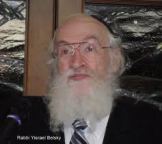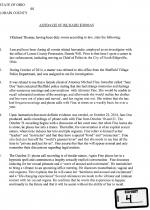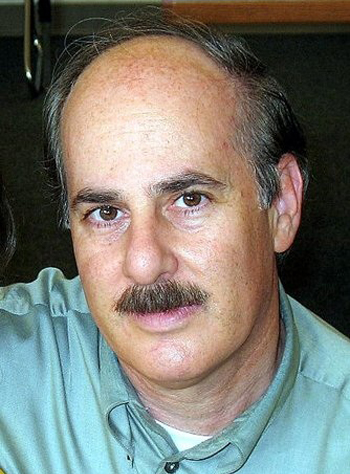CLICK:
https://plus.google.com/106580239978263655484/posts
The arrest and charging of Rabbi Barry Freundel was a terrible shock to most. But in reading some of the first-person accounts of encounters with Freundel, a pattern has emerged of a man whose abuse of power was not entirely unknown but never publicly challenged.
From Toronto, in the county in which I grew up and love, similarly the story of Jian Ghomeshi, a former rock star turned popular radio host, has uncovered tales of years of abuse and exploitation spoken about quietly and never explicitly published or charged.
From Toronto, in the county in which I grew up and love, similarly the story of Jian Ghomeshi, a former rock star turned popular radio host, has uncovered tales of years of abuse and exploitation spoken about quietly and never explicitly published or charged.
Reading these now public accounts has opened up floodgates of personal memory and laid open the implicit challenge that comes when men in power abuse or harass women, in particular young or vulnerable ones.
And having grown up in and become a professional in the inner circles of the Jewish community, the memories and stories come from inside our “kodosh kodoshim,” our holiest of places and institutions.
And having grown up in and become a professional in the inner circles of the Jewish community, the memories and stories come from inside our “kodosh kodoshim,” our holiest of places and institutions.
When I was 19, I was invited to a high-level meeting of my student group being held in the Old City in Jerusalem. As Shabbat descended, I found myself in a small private bedroom where the only other female leader was sleeping soundly.
I was flattered that our executive director had sought me out to discuss some of the upcoming business; I was political, ambitious and believed in the causes we were activists for. But at some point he began undoing the zipper on my dress and pushing me down on the bed. I told him to cut it out but that was only mildly effective. I remember my confusion. Young and sexually inexperienced, I was not attracted to this man. He was someone I respected. I did not want to wake my roommate.
He told me not to fuss. The Shabbat siren wailed; my roommate woke and we went to pray. Over the mechitzah, he continued to leer at me and my confusion turned to anger.
I was flattered that our executive director had sought me out to discuss some of the upcoming business; I was political, ambitious and believed in the causes we were activists for. But at some point he began undoing the zipper on my dress and pushing me down on the bed. I told him to cut it out but that was only mildly effective. I remember my confusion. Young and sexually inexperienced, I was not attracted to this man. He was someone I respected. I did not want to wake my roommate.
He told me not to fuss. The Shabbat siren wailed; my roommate woke and we went to pray. Over the mechitzah, he continued to leer at me and my confusion turned to anger.
At dinner, I made sure not to be seated with him, but at some point when he made a comment about changing that, I stood up and said before all assembled that I had not come to be physically or religiously pressured. All conversation stopped. I looked a fool, I am sure, but the harassment stopped there.
I was proud of myself. I felt empowered. But it was no easy feat. No one, not even the other female on the board, ever asked about my outburst. This was not surprising. At other retreats I had seen board members stick their penises in the faces of sleeping friends, and others prey on underage girls.
Sexualization and harassment were part of the culture, and if I wanted to play in the big leagues I had to be strong enough to deal with it. So as hard as it was, I internally spun the story as one of pride for my ability to talk up, playing down the utter humiliation and isolation.
Sexualization and harassment were part of the culture, and if I wanted to play in the big leagues I had to be strong enough to deal with it. So as hard as it was, I internally spun the story as one of pride for my ability to talk up, playing down the utter humiliation and isolation.
My brashness came in no small part from an understanding of my self worth (thanks to my ima for that) and the Jewish values that were part of the same education package the men I knew had grown up with. But there was also a piece that I would come to understand only with time. The stakes were low and the violation, while upsetting, relatively minor. I had little to lose by speaking up.
The harassment, while troubling, had not crossed in my mind that imaginary line that often makes the shame too hard to overcome for the sake of reporting. This man, while in a position of power, was of increasingly little consequence in my life and I did not worry about direct retribution. And finally, I was young and still not fully aware that holding men accountable for abuse of power could and often does have repercussions that can add layers of trauma.
The harassment, while troubling, had not crossed in my mind that imaginary line that often makes the shame too hard to overcome for the sake of reporting. This man, while in a position of power, was of increasingly little consequence in my life and I did not worry about direct retribution. And finally, I was young and still not fully aware that holding men accountable for abuse of power could and often does have repercussions that can add layers of trauma.
I wish I could say that that is the end of this story. Through the years I’ve supported women who have had to sit and watch their rapists lead tefillot, or suffer as their abusers are celebrated as among the great Jewish leaders. I personally have had to face inappropriate behavior from men in the Jewish community. Sometimes I’ve spoken out, and sometimes not. I’ve avoided some very bad situations because even when women don’t speak up publicly they share information quietly. With the help of this informal network, I’ve avoided getting into elevators alone with particular men. I’ve chosen not to engage in conversations with certain men or pursue specific opportunities.
The good men of the Jewish world far outweigh those who abuse their power. But abuses, small and large, exist and come at a cost. Women rarely have the opportunity to speak up and push back, for when we do, we risk at best being told that we are too sensitive (what I was once told by a colleague when I objected to being told to “stop acting like a wife”) or at worst that we brought it on ourselves (what I was told when I recounted the Old City story to a loved one). We risk being labeled as difficult, getting a reputation as too outspoken or jeopardizing employment if we challenge the wrong people.
Sometimes we walk away from the Jewish world, because it is just too hard to live in close quarters with those who betray our trust or because the values that are supposed to come from the holiest place are the same ones that are used to overlook deplorable behavior.
Sometimes we walk away from the Jewish world, because it is just too hard to live in close quarters with those who betray our trust or because the values that are supposed to come from the holiest place are the same ones that are used to overlook deplorable behavior.
As I watch a new generation of young women begin to take their places in the Jewish world, I wish for them more safety and less exploitation. But barring that, I pray that they have the strength to find the support that they need when they need it, so that they remain safe and holy in body and spirit. In lieu of protection I cannot guarantee, I offer this advice: take the rumors to heart.
No level of observance, power, or privilege is immune to men who exploit their manhood. And if bad things happen, do not blame yourselves. It is not your fault. You did not bring it on yourselves. You are holy, created in the image of God. No one has the right to treat you otherwise.
No level of observance, power, or privilege is immune to men who exploit their manhood. And if bad things happen, do not blame yourselves. It is not your fault. You did not bring it on yourselves. You are holy, created in the image of God. No one has the right to treat you otherwise.





 suspension of the lawyer, who has been practicing for more than 30 years.
suspension of the lawyer, who has been practicing for more than 30 years. Fine, who directed the woman to bring a vibrator to their next office meeting, ended the call by saying, “You’ll only recollect what we were talking about your case until we see each other tomorrow. Do you understand?”
Fine, who directed the woman to bring a vibrator to their next office meeting, ended the call by saying, “You’ll only recollect what we were talking about your case until we see each other tomorrow. Do you understand?”




